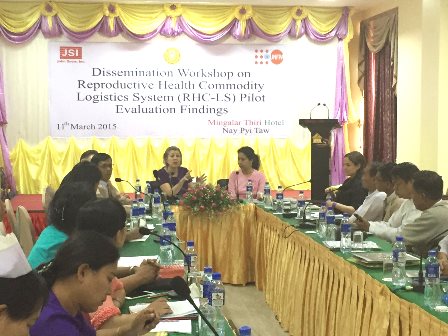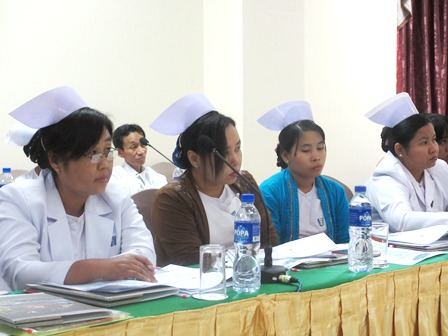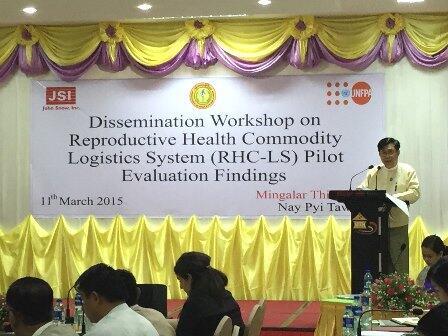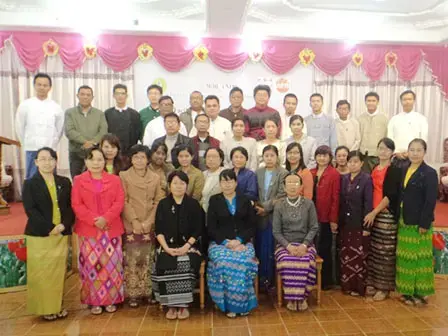Dedayae, a township in the Ayeyarwady Region, was the first township in Myanmar to successfully pilot the use of mobile phones to collect data to increase the availability of reproductive health commodities. The evaluation of this pilot shows that mobile data entry has strengthened the supply chain system and significantly reduced stock outs. Compared to non-mobile facilities, fewer errors were made in data entry (0% vs. 6%), more transactions were made (32 vs. 10) and data was updated quicker (12 days vs. 36 days).

The new Reproductive Health Commodity Logistic System (RHC-LS) was designed to ensure product availability, build logistic capacity of staff, motivate and support staff and to provide transportation efficiency and availability of adequate storage space. The pilot of this new system and its evaluation will help to determine which elements of the design need to be improved to ensure the availability of life-saving reproductive health commodities and the adjustments needed for a standardized and digitalized national logistic supply chain system. Besides Dedayae, eleven townships have implemented the pilot of the Reproductive Health Commodity Logistic System (RHC-LS) without mobile phones. Nearly 700 health workers from four States/Regions were trained on the use of the new supply chain system. The evaluation indicates the training has improved the skills of basic healthcare staff to manage commodities and improved the completion of forms that are necessary for a smooth flow of commodities.

There were also some challenges in the implementation of the RHC-LS. Firstly, although the RHC-LS system improves reproductive health products management and reporting quality, staff currently have to update two systems because the paper based system is still needed for auditing purposes. Secondly, a lack of communication between the central program manager and the State/Regional and township level on supplies as well as availability of reproductive health commodities in the system has resulted in stock imbalances. The RHC-LS, which is created by UNFPA along with the Ministry of Health and John Snow Inc (JSI). and with technological assistance of Logistimo, will in time, as it is develops while taking into account this important feedback, become fully functional.





